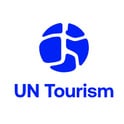Asia and Pacific Countries Advance Shared Vision of Tourism for Development
UNWTO's Member States came together for the 35th meeting of its joint Commission for East Asia and the Pacific and South Asia to assess the major challenges to tourism development in the region for the years ahead.
UNWTO's Members from Asia and the Pacific met as recovery from the impacts of the pandemic on tourism in the region steadily accelerates. According to UNWTO data:
- Worldwide, twice as many people travelled internationally in the first three months of 2023 than in the same period of 2022, taking global tourism back to 80% of pre-pandemic levels.
- For Asia and the Pacific, however, international arrivals got back to 54% of pre-pandemic levels by the end of the quarter.
- Recovery across the region is expected to accelerate following the re-opening of China to tourism. China was the world's biggest tourism source market in 2019. Reflecting the significance of the moment, a high-level delegation from UNWTO visited China in February to mark the official re-opening.
Asia and the Pacific plays a key role in the state of our sector. It is a top source market, a hub of tourism innovation and home to many of the world’s leading businesses and most exciting destinations
"It is no exaggeration to say that, over the past year, all eyes in global tourism were on Asia and the Pacific," said UNWTO Secretary-General Zurab Pololikashvili. "Asia and the Pacific plays a key role in the state of our sector. It is a top source market, a hub of tourism innovation and home to many of the world's leading businesses and most exciting destinations."
Demonstrating Cambodia's strong political support for UNWTO's mission, Prime Minister Hun Sen met with the Secretary-General to discuss the steady acceleration of tourism in the region after the pandemic, while emphasizing the sector's vital importance for sustainable development of tourism in the country and across the wider region.
UNWTO welcomed a participation to the joint Commission for East Asia and the Pacific and South Asia Joint Commission, including 15 Ministers, Deputy Ministers of Tourism and Ambassadors, and with 25 countries represented. The Meeting was held in conjunction with the 55th Meeting of the UNWTO Commission for East Asia and the Pacific (CAP), the 59th Meeting of the UNWTO Commission for South Asia (CSA), the UNWTO Conference on International Code for the Protection of Tourists and the UNWTO Affiliate Members Roundtable.
Asia and Pacific Members Support UNWTO Priorities
Member States were provided with an overview of UNWTO's achievements guiding tourism forward, based on its Programme of Work and current priorities including:
- Education: Of the 300 education programmes certified by UNWTO's Ted.Qual initiative, 160 are offered in Asia and the Pacific, to help tourism professionals grow in their careers. To support youth empowerment, UNWTO is also launching national versions of its Students League, with China currently developing its own edition.
- Investments in Tourism: Fostering the implementation of sustainable investment frameworks for the promotion of tourism investments and job creation in a post-pandemic world was one of the main objectives of UNWTO's Executive Training Programme in the Republic of Korea last November. And in Phnom Penh, UNWTO invited Members to join the 2023 World Tourism Day celebrations (27 September), to be held around the theme of "Green Investments".
- Sustainability: UNWTO announced that the Batanes Tourism Observatory in the Philippines has become the newest member of the International Network of Sustainable Tourism Observatories (INSTO), with an institution in Japan set to follow soon.
Advancing the International Code for Protection of Tourists
Ahead of the Commission meeting, UNWTO held a special conference on its International Code for the Protection of Tourists (ICPT). Here:
- Cambodia, the Maldives and Indonesia became the newest signatories to UNWTO's International Code for the Protection of Tourists.
- UNWTO's Member States across the Asia and the Pacific region adopted the Phnom Penh Declaration on the ICPT, promoting its implementation to ensure clear, transparent and efficient frameworks to protect tourists as consumers to foster confidence in travel.
Affiliate Members Roundtable
Under the theme "Public-private cooperation at the core of tourism sustainable development", discussions focused on the importance of finding mechanisms to reinforce the dialogue between all tourism stakeholders and showcased tangible examples of initiatives and projects implemented by Affiliate Members to foster sustainable practices in the tourism sector.
Looking Ahead
In line with UNWTO's statutory obligations, Members from East Asia and the Pacific nominated China, Indonesia, Japan and Republic of Korea to represent the region on the UNWTO Executive Council.
The two Commissions for East Asia and the Pacific and South Asia also agreed that:
- The 36th Joint Meeting of the UNWTO Commission for East Asia and the Pacific and the UNWTO Commission for South Asia will be held in Cebu, Philippines in 2024.
- World Tourism Day 2025, to be held around the theme of "Tourism and Sustainable Transformation" will be hosted by Malaysia.
- CAP-CSA, 55TH CAP, ""35th CAP-CSA, 55th CAP, 59th CSA and UNWTO Conference on the International Code for the Protection of Tourists & UNWTO Affiliate Members Roundtable
- Asia and Pacific Unite in Support of the International Code for the Protection of Tourists
- Regional Department for Asia and the Pacific
About UN Tourism
The World Tourism Organization (UN Tourism), a United Nations specialised agency, is the leading international organisation with the decisive and central role in promoting the development of responsible, sustainable and universally accessible tourism. It serves as a global forum for tourism policy issues and a practical source of tourism know-how. Its membership includes 166 countries, 6 territories, 2 permanent observers and over 500 Affiliate Members from the private sector.
Media enquires: [email protected]
